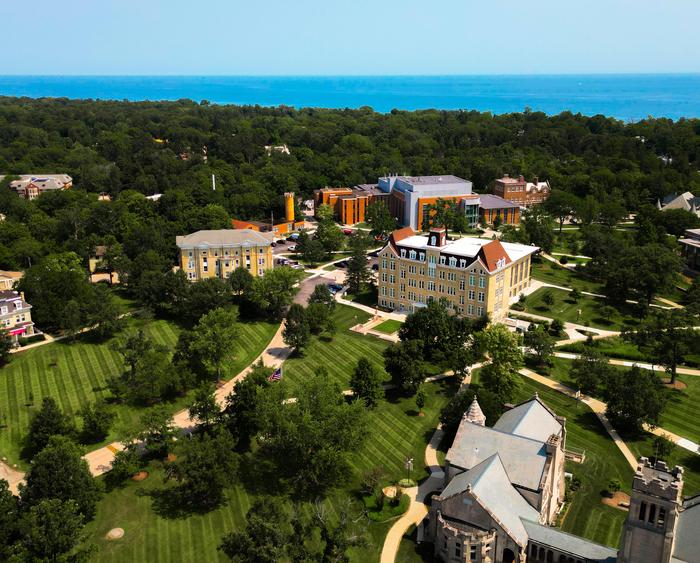Lake Forest College to support green energy through Renewable Energy Credits

The College will purchase Renewable Energy Credits (RECs) representing 100 percent of its energy use for the year 2025.
The REC purchase was proposed by the Campus Sustainability Committee. The move marks a sharp uptick from the 20 percent purchased for 2024.
“We were aligning our sustainability goals with the US goal of 100 percent clean electricity by 2035 and net-zero emissions by 2050, but decided to push up our efforts 10 years because there was no reason to postpone the switch,” Chair of the Campus Sustainability Committee and Associate Professor of Sociology and Anthropology Todd Beer explained.
Comprised of faculty, staff, and students, the Committee is funded by students who pay a $10-per-semester Green Fund as part of their activity fees.
The College’s Senior Leadership Team wholeheartedly approved the 2025 move-up date and was thrilled to work in partnership with the Sustainability Committee.
Other recent environmental initiatives supported by the Campus Sustainability Committee and the student Green Fund include:
- Diverting 3,350 pounds of food waste from landfills via an organic waste recycling service, which also saves 3,323 miles of driving to a landfill or 150 gallons of gas
- Recommending sustainable College-branded gear whenever possible and to avoid single-use items
More information on the College’s sustainability efforts can be found here.
Sustainability Guiding Principles
As part of the switch to campuswide move towards sustainability, the College adopted the following Sustainability Guiding Principles:
The Lake Forest College community works intentionally and strategically to fulfill our deep commitment to environmental sustainability and to stewardship of the ecosystem our beautiful campus is a part of.
We are committed to reducing our impact on future generations and on communities that are disproportionately exposed to environmental harms. As an academic institution, our efforts are guided by the consensus of the scientific community. As an educational institution, we empower our students through teaching, research, and modeling best practices to be sustainability leaders in their careers and communities. This commitment is evident in our efforts to reduce our contribution to climate change both boldly and rapidly as we work toward carbon-neutral electricity by 2030.
Campus leaders embrace a culture of environmental sustainability in planning and action, making our campus increasingly energy and water-efficient, reducing our waste through reuse, recycling, and composting, and restoring and expanding native habitats.

